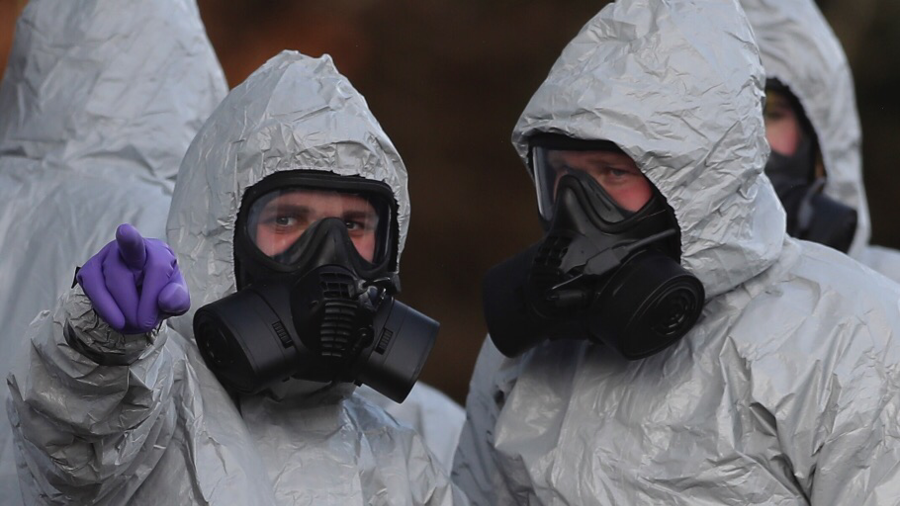Russia’s Embassy in London has sent a list of 14 questions to the UK Foreign Ministry, demanding that it reveals details of the investigation into the nerve-agent poisoning of former double agent Sergei Skripal and his daughter.
The questions, provided in full below, include a demand to clarify whether samples of the nerve agent А-234 (also known as “Novichok”) have ever been developed in the UK. The embassy’s statement calls the incident that started the recent diplomatic row a “fabricated case against Russia.”
1. Why has Russia been denied the right of consular access to the two Russian citizens, who came to harm on British territory?
2. What specific antidotes and in what form were the victims injected with? How did such antidotes come into the possession of British doctors at the scene of the incident?
3. On what grounds was France involved in technical cooperation in the investigation of the incident, in which Russian citizens were injured?
4. Did the UK notify the OPCW (Organization for the Prohibition of Chemical Weapons) of France’s involvement in the investigation of the Salisbury incident?
5. What does France have to do with the incident, involving two Russian citizens in the UK?
6. What rules of UK procedural legislation allow for the involvement of a foreign state in an internal investigation?
7. What evidence was handed over to France to be studied and for the investigation to be conducted?
8. Were the French experts present during the sampling of biomaterial from Sergei and Yulia Skripal?
9. Was the study of biomaterials from Sergei and Yulia Skripal conducted by the French experts and, if so, in which specific laboratories?
10. Does the UK have the materials involved in the investigation carried out by France?
11. Have the results of the French investigation been presented to the OPCW Technical Secretariat?
12. Based on what attributes was the alleged “Russian origin” of the substance used in Salisbury established?
13. Does the UK have control samples of the chemical warfare agent, which British representatives refer to as “Novichok”?
14. Have the samples of a chemical warfare agent of the same type as “Novichok” (in accordance to British terminology) or its analogues been developed in the UK?
A similar list, containing 10 questions, was sent to the French Foreign Ministry by the Russian Embassy in Paris. According to the document, Moscow wanted to know on what grounds France was involved in the British investigation into the Skripal poisoning.
It demanded that Paris reveal what kind of evidence was handed over to France by the UK, and also inquired if French experts were in possession of the samples of the nerve agent А-234 (also known as “Novichok”) or biomaterials from Sergei and Yulia Skripal.
Russia also demanded explanations on what made French experts conclude that the substance used in Salisbury attack was nerve agent А-234 and that it was of Russian origins. The final question on the list read: “Have the samples of a chemical warfare agent of this type or its analogues been developed in France and if so, for what purpose?”
Sergei Skripal and his daughter, Yulia, were discovered on a bench in Salisbury in early March, with the UK claiming a Soviet-designed nerve agent was used against them. Without a proper investigation being carried out, London said it was “highly likely” that Russia was responsible for the attack and introduced sanctions against the country, including the expulsion of Russian diplomats.
Moscow has denied all accusations, decrying them as a “provocation,” and demanded proof from the British side. However, London refused to cooperate with Russia on the case, denying its consular staff access to Russian citizen Yulia Skripal and turning down the request to provide a sample of the toxic substance in question.
H.M

